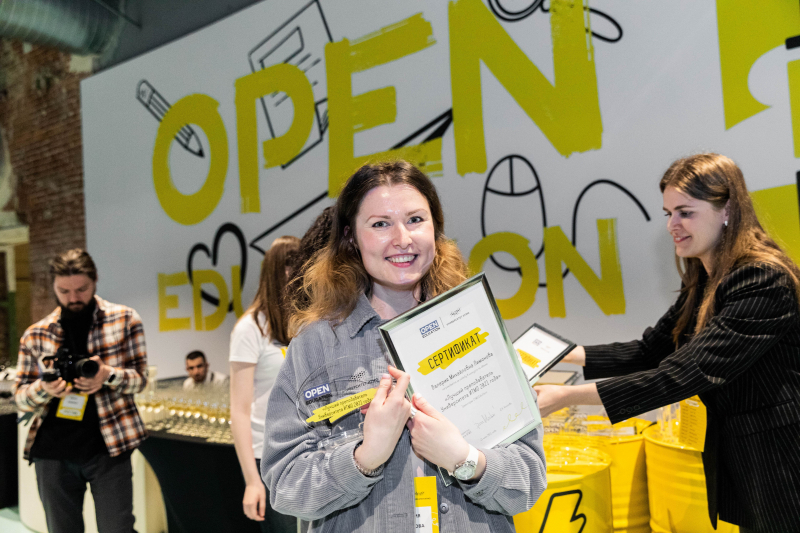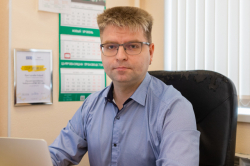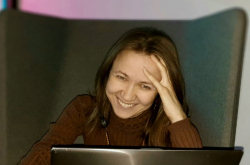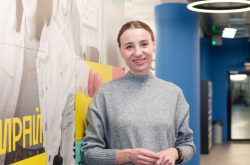How did you come to work at ITMO?
I am a humanities student but I come from a family of physicists. I graduated from the Faculty of Economics of St. Petersburg State University and then worked in event management, where I organized conferences, including scientific ones. I really like communication. Then, I came to ITMO to organize METANANO and stayed. Quite unexpectedly, I found another career that I came to love.
At the same time, I started teaching soft skills at the Faculty of Physics. Back then it wasn't mainstream yet, so there was only a course called Management in Physics, where students learned about scientometrics, business ethics and communication, and exercised their business writing and public speaking skills. I taught the course for a year and then it became one of the core modules.
My first group consisted of very different students, some of them much older than me. For instance, there was a fifty-year-old woman with a lot of skepticism on her face at my first class, probably wondering what on earth I might be able to teach her. But the majority of students were really supportive and encouraging.
Once Maria Didkovskaia (head of ITMO’s Internationalization Department – Ed.) who was back then planning to organize a course in soft skills, visited one of my classes and suggested I head the course called Business and Science Ethics, Research Management. This year, this course grew into Career Management in Science.
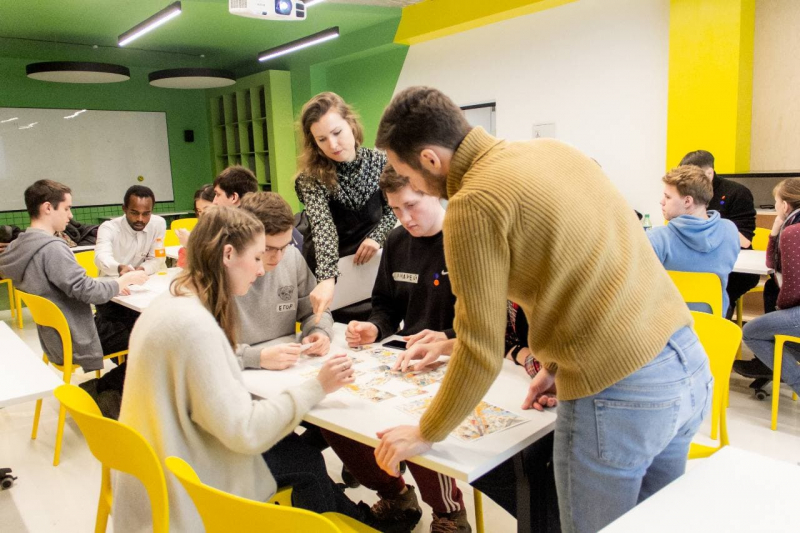
Valeria Limonova at a soft skills class
How do you find the right approach for each student and keep them all engaged?
Over the years at ITMO, I’ve held classes for very different people – Bachelor’s and Master’s students, graduates, etc. It’s always a challenge to work with a class of people of different ages and with various levels of experience, you have to understand how to involve all of them. For instance, older students can be asked for their opinions as experts.
I had an initially skeptical student that was about 50 years old, who was my friend by the end of the course. During class, I often addressed him as an expert, and surreptitiously he liked it – and everyone else got the benefit out of his experience. These small steps are the building blocks of communication, you have to always try to befriend your audience.
You know, there is this obsolete approach where lecturers are considered to be above their students. But today it doesn’t work like that! I come into a class of first- and second-year Bachelor’s students, who are very smart and know a ton of things I don’t, such as Python and C++. That’s why you have to always respect your students as your equals.
I also think that it’s important to see a whole universe behind every student. I feel this even stronger when I work with Bachelor’s students – they are all open, different, and interesting. Some are introverted, some more talkative. And it’s important to listen to every one of them and find the right approach to each.
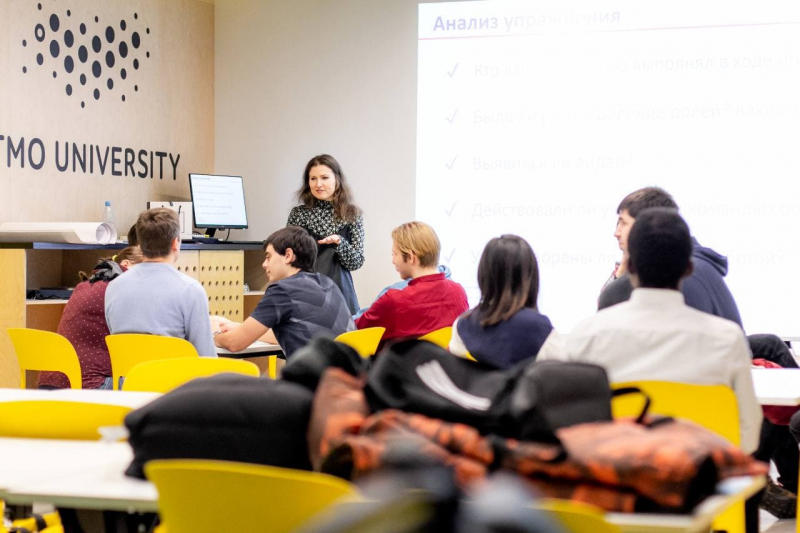
Valeria Limonova at a soft skills class
Which courses do you teach now?
I am head of the Career Management in Science course for Master’s students and this year I am starting to manage the course IT Mentors School for Bachelor’s students that we are launching together with the Physics and Mathematics Lyceum No. 30.
We are training students to manage the projects of high school students in robotics or programming that are trying to improve their school or environment. For instance, they are developing a digital gradebook or digital class schedules, where you can see the office hours and offices of every teacher, like on the Marauders Map from Harry Potter.
ITMO’s third-year students will come in to head such teams and their task will be to motivate them and take them through each stage of project development.
I also develop and teach soft skills courses at the Faculty of Physics. Ever since I beat my impostor syndrome I allow myself to be creative and come up with more new projects.
How do you explain to physicists that not only their core subject but also soft skills can be useful?
In the course, we invite physicists to hold lectures and explain why soft skills matter based on their experience.
Once, Alexey Slobozhanyuk, dean of the Faculty of Engineering Research, told the students that at one of his conferences he was staying at a hotel, where he heard his neighbor rehearse his talk again and again. It later turned out that this neighbor was a Nobel laureate who opened the conference. When students hear such stories, they understand how important it is to prepare their talks.
The last lectures in the course are also taught by physicists, who talk about an in demand field – popular science talks. For instance, George Zograf, junior researcher at the Faculty of Physics talked about the basics of giving a popular science talk and engaging your audience.
I like this approach where the first lectures are given by researchers who underline the importance of the course and then soft skills lecturers come in and equip students with the methods of getting ready for a talk, getting over their nerves, planning talks, and introducing public speaking tips. That way it’s more interesting for the students. I do my best to invite great educators who will interact with the class.
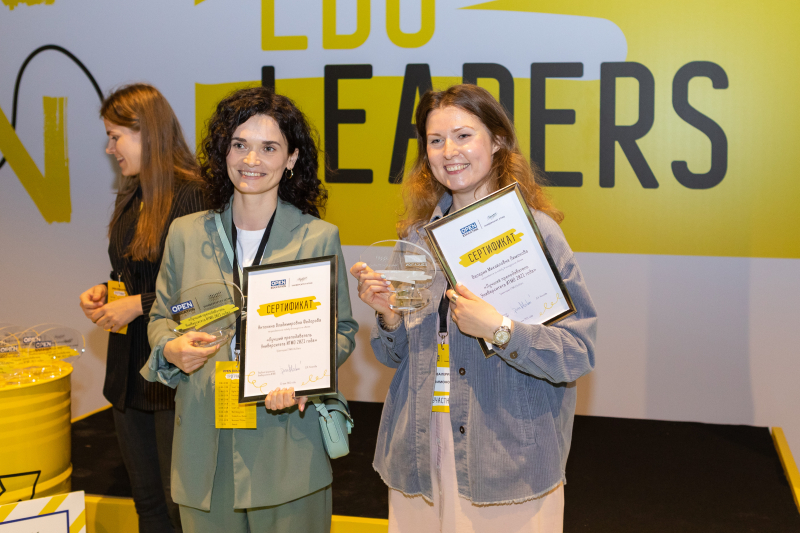
Antonina Fedorova and Valeria Limonova at ITMO’s Open Education conference
You said you’d faced the impostor syndrome. Why do you think you experienced it and how did you cope with it?
Maybe it was because I wasn’t planning to be a lecturer and it sort of happened on its own accord. Although now I feel that I am in the right place.
When my colleagues and I went for an internship at Boston University, our lecturers stressed the importance of building a connection to your audience. I think I’ve always had this talent. I came to be an educator without professional training in this field or experience in course methodology. I had useful knowledge and my communication skills polished over the years of work in event management. I could work in a team, resolve conflicts, quickly react when something went wrong, and speak to a large audience. All of those skills came in handy for the courses I teach.
But I am still worried that I wasn’t professionally trained to be a lecturer. I had to allow myself to teach, in my head I was a person out of nowhere… Now, though, it doesn’t bother me. Firstly, I am a non-traditional lecturer at a non-traditional university. Secondly, when I received the first warm and positive feedback from my students I realized that I’d chosen my path well.
Thirdly and most importantly, I am learning and boosting my skills all the time, I take a new course every semester. For instance, in the winter, I studied gamification in education. Before I also took courses in public speaking, conflict management, emotional intelligence, and educational techniques in English.
There was a time when I performed with an amateur theater and took vocal lessons. When you’re a teacher you have to constantly learn and develop – or you won’t be able to teach others.
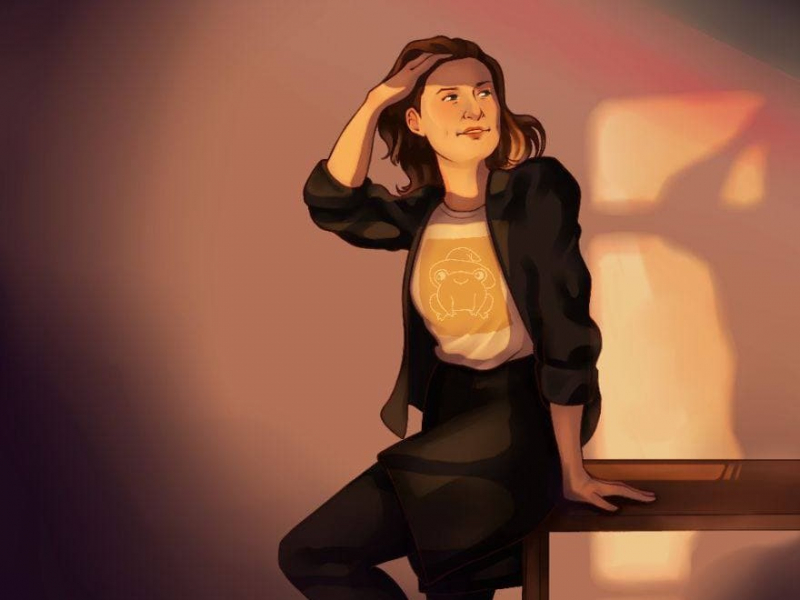
Portrait of Valeria Limonova made by Ksenia Pokhodnya, an ITMO University student. Picture courtesy of the subject
Speaking of hobbies, what do you do in your free time?
I love travelling – I’ve been to many European countries and the US, spent several months in Japan, China, and Australia. You are different in every journey. In our daily lives we’re usually acting within certain routines, but when you travel you can look at yourself from a different angle and allow yourself to do more.
I also love camping. Usually, a helicopter takes us to a remote location, like the Kola Peninsula. There is no connection, only one satellite phone for our group. We spend a couple of weeks there and it’s the feeling of absolute freedom and being one with nature.
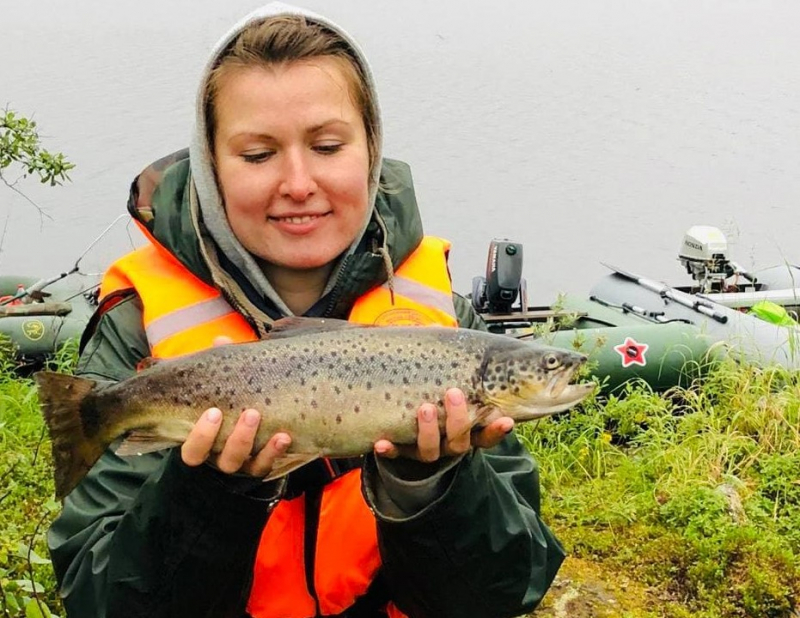
Valeria Limonova. Photo courtesy of the subject
One other passion is painting. I go to a friend’s studio to practice oil painting. I read a lot, especially books on self-development and a healthy lifestyle. For instance, my new favorite topic is sleep – I’ve read several books on the subject and now I’ve finally started going to bed at 10-11 pm, I quit using digital devices two hours before sleep, made my bedroom dark and cool, and stopped drinking coffee and alcohol.
Why did you decide to take part in ITMO.EduLeaders?
I saw the newsletter and thought it was a cool contest. One of the important points for me was that my classes would be seen by a committee of experts, who would evaluate my work. I wanted to get such useful feedback. Then, right before the Open Education conference I received a call – I was asked to stay until the end. I started to realize that I might’ve gotten into the final. I was also very nervous, because there are so many talented lecturers at ITMO – I thought that this award might be given to me in anticipation of greater achievements.
But I am sure they will come. It’s wonderful when you love your job and it’s even better when the love is mutual. My best reward is the feedback from students. It means that it’s all going well and I am on the right path. I would like to thank ITMO for the projects that support students and lecturers.
